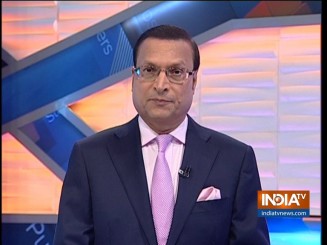 A five-judge bench of the Supreme Court on Friday referred the 70-year-old Ayodhya dispute to a three-member mediation panel, comprising spiritual guru Sri Sri Ravi Shankar, former SC judge F. M. Kalifulla and mediation expert Sriram Panchu and asked the panel to submit its report within eight weeks. The apex court asked them to carry out the mediation process in utmost secrecy.
A five-judge bench of the Supreme Court on Friday referred the 70-year-old Ayodhya dispute to a three-member mediation panel, comprising spiritual guru Sri Sri Ravi Shankar, former SC judge F. M. Kalifulla and mediation expert Sriram Panchu and asked the panel to submit its report within eight weeks. The apex court asked them to carry out the mediation process in utmost secrecy.
I think this is a correct step in the right direction. It was former Prime Minister Chandrashekhar who had initiated talks to resolve the Ayodhya dispute, two years before the Babri mosque was demolished. Former PM Atal Bihari Vajpayee also opted for mediation, and several other individuals or groups made efforts to bring out an amicable solution. All these efforts could not succeed.
The matter was then taken to Allahabad High Court which gave its judgement calling for a 2:1 bifurcation of the disputed land. The High Court accepted the plea that the Babri mosque was built on the debris of a temple in Ayodhya, but since the disputed land was sought to be trifurcated, the matter has now reached the apex court.
Technically it is a title suit, but the dispute is linked with the faith of millions of Indians. It is the job of the Supreme Court to deliver its verdict taking into account all the legal and Constitutional aspects, but it is not easy for the apex court of the land to deliver its judgement on an issue that relates to the faith of millions.
I feel the apex court has taken the right step towards mediation. Any judgement by the court could have resulted in victory or defeat for either of the parties, whereas a solution reached through mediation can accepted as a victory for India’s unity. Those who are saying that the court is delaying its verdict should understand that eight weeks’ time has been given to the mediators. During this time all parties can go through the translation of voluminous evidences, so that none of the parties can raise questions on translations later during hearings.
The setting up of the three-member mediation panel clearly shows the apex court’s intention of arriving at an amicable solution through dialogue, rather than a verdict imposed from above that could complicate the issue further.
Click Here to Watch Full Video | Get connected on Twitter, Instagram & Facebook